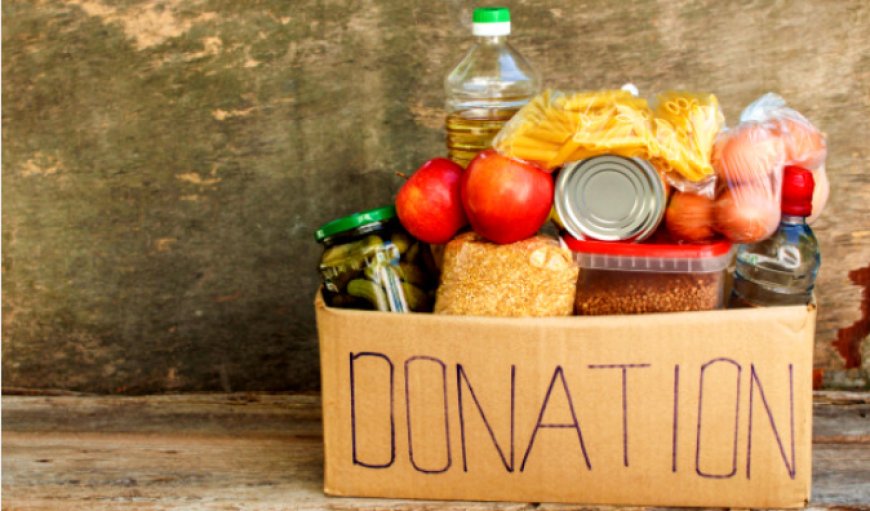Building a Better World: Why the Donation of Food Is a Moral and Social Imperative

In a world where abundance and scarcity coexist, the donation of food emerges as one of the most impactful ways to address hunger, reduce waste, and promote compassion. While millions of people struggle to secure even a single nutritious meal, enormous quantities of edible food are discarded every day. This imbalance is not just a logistical challenge; it is a moral crisis that calls for immediate and thoughtful action.
This blog explores the significance of the donation of food, the far-reaching effects it can have on individuals and communities, and the reasons why more people and institutions should engage in this crucial humanitarian act.
Understanding the Need for Food Donation
Hunger continues to affect a vast portion of the global population, with undernourishment and food insecurity being persistent challenges in both developing and developed nations. The reasons vary—from poverty and unemployment to climate change and forced displacement.
When one chooses to support the donation of food, they are contributing directly to the fight against hunger. Food donation plays a dual role: it helps feed those who are most in need and prevents the environmental damage caused by food waste.
The Scale of Food Waste and Its Consequences
Every year, millions of tons of food are wasted globally. From excess production and inefficient distribution systems to expiration mismanagement in homes and businesses, valuable food is thrown away while people go hungry.
This makes the donation of food not just a humanitarian effort but an environmental necessity. Food waste contributes to greenhouse gas emissions and the overuse of natural resources. Donating food reclaims this lost value and redirects it toward those who need it most.
Why the Donation of Food Goes Beyond Charity
It’s essential to understand that the donation of food is not merely an act of charity—it is an investment in social well-being and human dignity. Providing food to someone in need restores their strength, fosters inclusion, and demonstrates that their life has value.
This act strengthens social cohesion and community resilience. When more people engage in the donation of food, it helps bridge social gaps, reduce stigma, and create networks of care that are essential for long-term development.
Who Benefits Most from Food Donations?
The beneficiaries of food donation efforts are diverse, ranging from individuals and families in poverty to people affected by natural disasters, health crises, or job loss. Key groups who benefit include:
-
Homeless individuals with no access to regular meals
-
Low-income families struggling to balance bills and nutrition
-
Elderly people living alone or in poverty
-
Children in underserved communities
-
Refugees and displaced persons in need of emergency food support
Through the donation of food, these individuals can receive the sustenance they need to maintain health, stability, and hope.
How Food Donations Support Nutritional Security
Beyond satisfying hunger, the donation of food also plays a vital role in improving nutritional outcomes. Access to balanced meals is essential for physical development, mental clarity, and overall well-being.
Donated food should ideally include fresh produce, proteins, and fortified staples to meet the diverse dietary needs of recipients. Nutritional security helps prevent malnutrition-related diseases and enhances productivity and learning, particularly among children and the elderly.
Effective Strategies for Donating Food
To make the donation of food more impactful, it is essential to follow certain best practices:
-
Focus on Nutrient-Rich Foods: Donating fruits, vegetables, grains, and protein sources ensures recipients get complete nutrition.
-
Avoid Highly Processed Foods: While non-perishable items are convenient, it’s better to prioritize those with real nutritional value.
-
Check Expiry and Packaging: Donated food must be safe and hygienically packed to avoid health risks.
-
Understand Cultural and Dietary Needs: Respecting dietary customs helps ensure that donated food is both acceptable and useful.
By taking these factors into account, the donation of food becomes more thoughtful, respectful, and beneficial.
Challenges in Food Donation and How to Overcome Them
While the donation of food is deeply beneficial, it also comes with certain logistical and regulatory challenges:
-
Storage and Transportation: Ensuring that food remains fresh and uncontaminated requires proper infrastructure.
-
Regulatory Compliance: Different regions have varying rules on food safety, donation standards, and liability protections.
-
Matching Supply with Demand: Coordination is necessary to ensure that donated food reaches the right recipients at the right time.
-
Waste Minimization: Donated food should be part of a broader effort to reduce waste across the supply chain.
Overcoming these challenges requires collaboration among donors, community organizations, local authorities, and volunteers. Strategic planning ensures that the donation of food becomes an efficient and sustainable activity.
Role of Individuals in Driving Food Donation
One of the most empowering aspects of the donation of food is that individuals can make a difference without large-scale resources. Simple actions like sharing surplus food, organizing local food drives, or supporting shelters with regular contributions can have a significant impact.
Awareness is also key. Educating friends and family about hunger issues and the importance of reducing waste creates a ripple effect that spreads compassion and change. The more people involved, the more widespread and effective the results of food donation become.
The Long-Term Impact of Consistent Food Donation
When the donation of food becomes a sustained and structured effort, its benefits extend far beyond immediate relief. Communities that receive consistent support become healthier, more stable, and more empowered to overcome systemic poverty.
Children perform better in schools when they are well-nourished. Adults become more productive. Healthcare costs decrease due to better diets. Community networks become stronger. In every way, the donation of food leads to long-lasting change that reaches across generations.
Promoting a Culture of Shared Responsibility
To truly address food insecurity, society must cultivate a mindset where sharing is a norm, not an exception. The donation of food should be viewed not just as an act of kindness but as a collective responsibility.
When governments, businesses, and citizens align in this mission, the potential to eliminate hunger becomes achievable. Open communication, shared goals, and regular engagement create a culture that prioritizes human dignity and environmental sustainability.
Conclusion: Turning Food into Hope
The donation of food is one of the most straightforward yet powerful ways to support those in need. It tackles hunger, reduces waste, nurtures communities, and fosters empathy. Whether driven by individual conscience or collective action, food donation has the potential to transform lives.
In a time when global challenges seem overwhelming, the act of giving food offers a clear, tangible, and deeply human solution. Every meal donated is more than just sustenance—it is a message of care, a gesture of solidarity, and a step toward a more compassionate world.
To build a future where no one goes hungry, let us start by sharing what we already have. The answer may lie on our plates—and in our willingness to give.





































































































![Building A Digital PR Strategy: 10 Essential Steps for Beginners [With Examples]](https://buzzsumo.com/wp-content/uploads/2023/09/Building-A-Digital-PR-Strategy-10-Essential-Steps-for-Beginners-With-Examples-bblog-masthead.jpg)





























![Senior Support Engineer - US West [IC3] at Sourcegraph](
https://nodesk.co/remote-companies/assets/logos/sourcegraph.f91af2c37bfa65f4a3a16b8d500367636e2a0fa3f05dcdeb13bf95cf6de09046.png
)




















